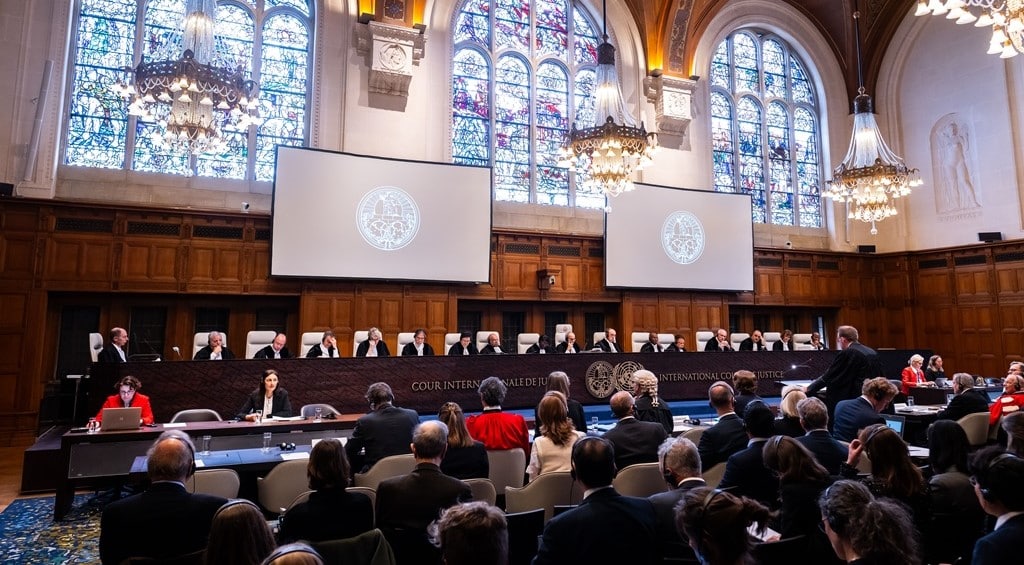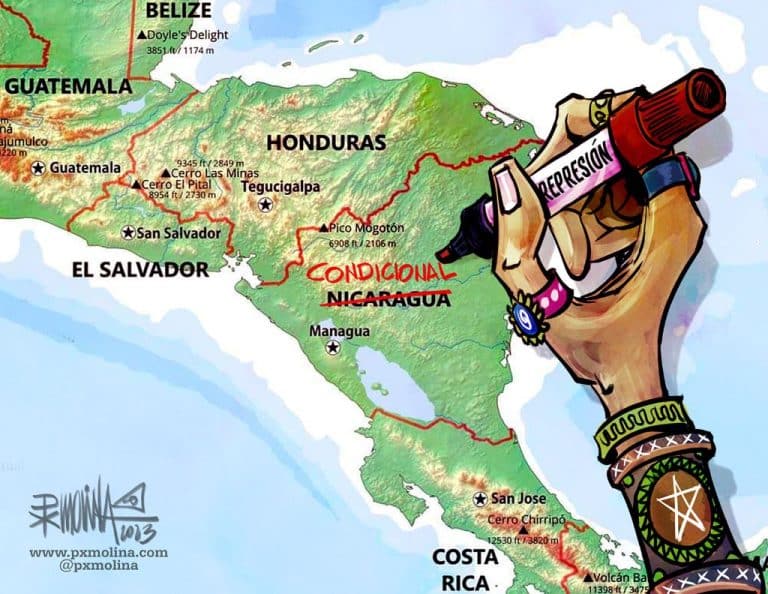21 de noviembre 2023

ICJ Rules Against Nicaragua's Request For Germany to Halt Arms Sales to Israel

PUBLICIDAD 1M
PUBLICIDAD 4D
PUBLICIDAD 5D
Ortega ordered Nicaragua’s withdrawal from the OAS, and Guatemala is in danger of soon having the Inter-American Democratic Charter applied to it

Bad examples are dangerous when others replicate them and, even worse, for rulers who prove they can impose their anti-democratic actions.
In its modern history (20th and 21st centuries), Nicaragua has had only brief passageways, those in which the three branches of government function and the independence among them is respected. Instead, they have suffered first with the dictatorial “dynasty” of the Somozas, the sadly famous “Tacho” -father and son-, and now they are surpassed in power and despotism by Daniel Ortega, who governs together with his wife Rosario Murillo.
It seems that age has made the dictator more intolerant because he has increased repression against his opponents, be they politicians, the independent press, freethinkers, academics, artists, writers, or simply the people tired of oppression and lack of opportunities. Dissonant voices have no place in today’s Nicaragua.
The examples are there for all to see. Before the 2021 elections, he took it upon himself to send to jail all opponents who could overshadow him at the polls; he has consistently been silencing the independent press; he caused a massacre when the people took to the streets to protest between 2018 and 2019; and he has canceled more than 3,000 NGOs.
Of course, to do all this and more!!!, he has absolute control of the courts, as well as a compliant congress that eats out of his hand.
As Mexicans would say, “les vale madre” (they don’t give a shit) about the opinion of the international community, and on November 19th, he left the OAS, the regional organization that has censured him time and again for the constant trampling of democracy and human rights violations.
Bad examples in the region are replicated. At a time of the last century, military regimes were taken as an “example” of government. After the return of democracy in Latin America at the turn of the century, Hugo Chavez made it to the presidency of Venezuela and became a dictator. He was soon imitated in attitudes by Rafael Correa (Ecuador), Evo Morales (Bolivia), and Ortega himself.
Nowadays, the dictatorships of Nicaragua, Cuba, and Venezuela are accused of the same abuses of democracy: a president controls the three branches of government; justice is applied selectively; freedom of the press is not respected; they don’t give a damn about international opinion; opponents go to jail or into exile; enrichment (corruption) is allowed to the “chosen ones”; and human rights are not respected.
Thus, it is not difficult to understand why I say that Daniel Ortega is a “bad example” in the region. In Guatemala, my country, there is a dictatorship in the making, not necessarily based on a person, but on a “system” that applies the same principles as those we see in Ortega’s Nicaragua.
As there, presidential candidates were selectively eliminated in the past elections. The justice system seeks the appearance of legality to persecute opponents, who have two options: jail or exile. The independent press is harassed. In Nicaragua, the newspaper La Prensa was forced to close, as was done in Guatemala with elPeriódico, a media outlet that denounced government corruption. The manager of La Prensa was accused of money laundering, the same crime perpetrated against journalist José Rubén Zamora of elPeriódico in Guatemala, one of the most awarded journalists in the hemisphere for freedom of the press. None of them received a fair trial.
The OAS and the US State Department issue resolutions censuring Nicaragua’s anti-democratic actions, just as they do with the Guatemalan authorities. The only thing in which Guatemala has an advantage is that 49 people, including officials, businessmen, or professionals, have been included in the Engel List, which sanctions “corrupt and anti-democratic” officials, while Nicaragua has “only” 41.
Daniel Ortega ordered his country’s exit from the OAS, and Guatemala is in danger of soon having the Inter-American Democratic Charter applied. Too many similarities between the Giammattei and Sandinista regimes cause concern among broad population sectors, especially those who cherish democratic values and freedoms. By the way, the Dominican Republic has been one of the countries that has sent the best message in defense of Guatemalan democracy within the Inter-American organization.
Some believe that it is a matter of ideology. However, it is simply a matter of anti-democratic spirit and ambition.
*Article originally published in Listín Diario.
This article was published in Spanish in Confidencial and translated by Havana Times. To get the most relevant news from our English coverage delivered straight to your inbox, subscribe to The Dispatch.
PUBLICIDAD 3M
Periodista. Expresidente de la Sociedad Interamericana de Prensa (SIP) y exdirector del diario Prensa Libre de Guatemala.
PUBLICIDAD 3D